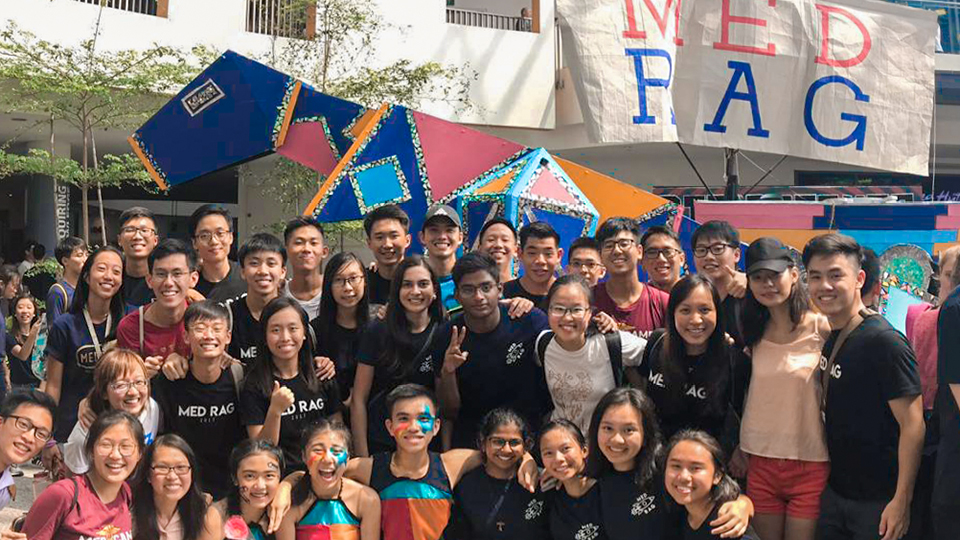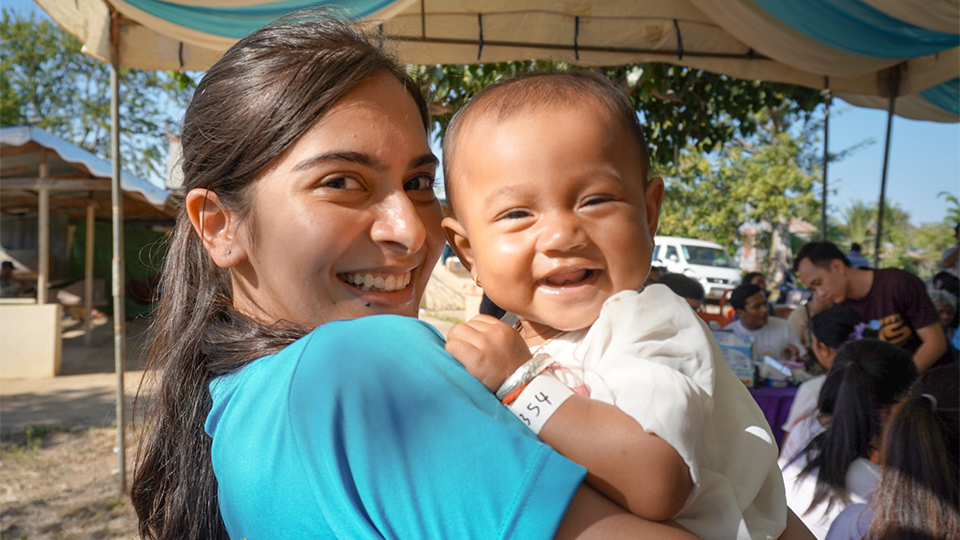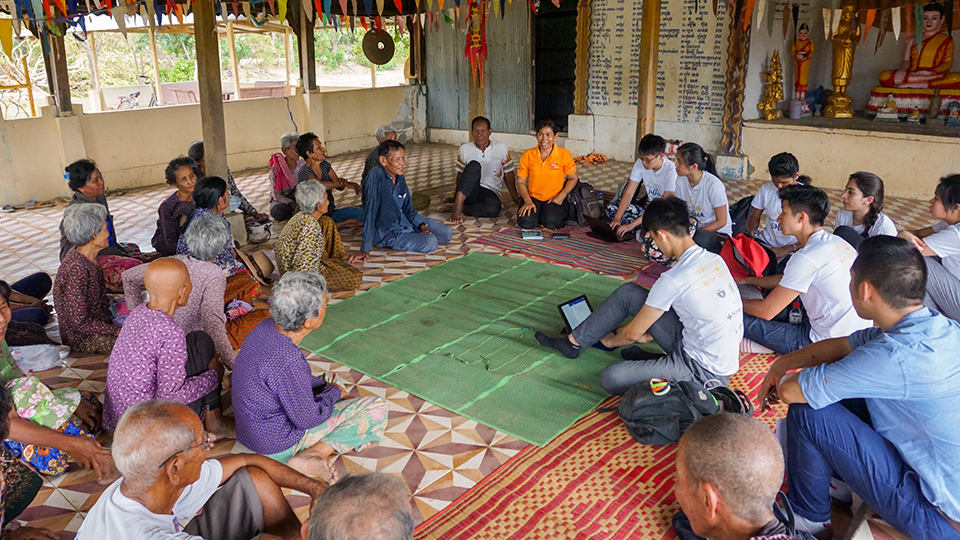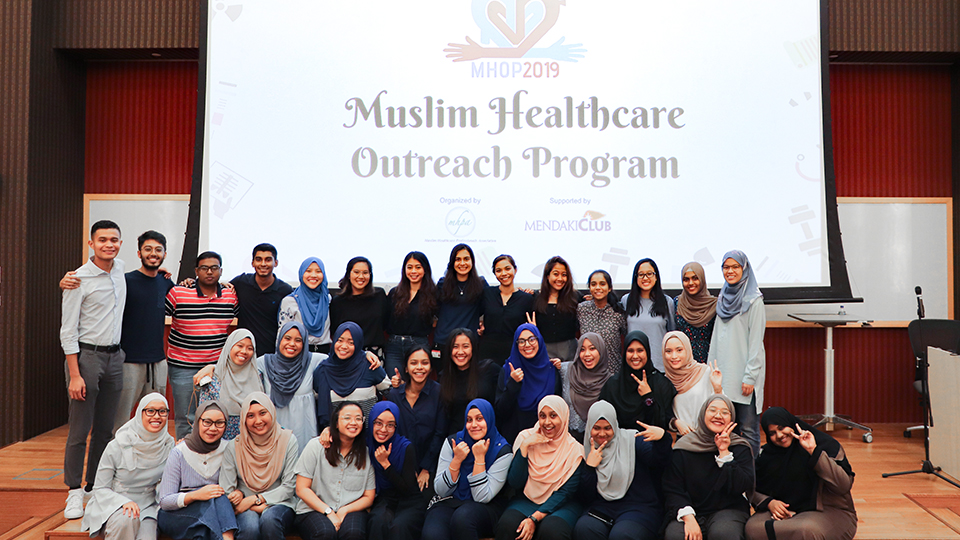Fatima Siddiqui didn’t take physics in Junior College, but she studied for it anyway.
It wasn’t out of academic curiosity that she did this. As a Raffles Institution student, she was involved in tutoring underprivileged children whose siblings suffered from chronic medical conditions.
“Many of these children struggle with school. Some have siblings with chronic health issues, so the family’s resources and attention go towards their siblings instead,” she explains.
When one of the programme’s tutors left before a crucial exam and could not be replaced, it was up to Fatima to step in. Despite being a biology and chemistry student, she found herself rifling through her old physics notes from secondary school.
“Okay fine, I didn’t study every single thing, just the relevant chapters,” she says with a laugh. “But the student’s family understood this wasn’t my area of expertise, I was just doing my best to help.”
This love of helping the community rubbed off on Fatima from her family, she explains. Her mother is a doctor. As a business owner, her father actively provides employment opportunities for the less privileged. Even her brother, who is just a few years older, started a Non-Profit Organisation (NGO) to help those in less developed Southeast Asian countries cope with the effects of COVID-19.
The decision to study medicine therefore came naturally to Fatima. The only question was where.
“I had a number of offers,” she confesses.
“But I chose NUS Medicine because it offered the most opportunities for community service and inter-faculty collaboration. It’s also my last few years of schooling so I wanted the most vibrant environment.”
 Fatima (third row, fifth from left) with her NUS Medicine housemates at Rag and Flag 2018
Fatima (third row, fifth from left) with her NUS Medicine housemates at Rag and Flag 2018
At NUS Medicine, she would soon encounter more than just opportunities to help those in need. The community projects were both larger in scale and more challenging, giving her a chance to experience first-hand the complexities of creating long-term impact.
One example would be Project Sothea, an NUS-led mission to improve the health of rural communities in Battambang, Cambodia. Students at NUS Medicine like Fatima provided health screenings, education and clinics to the villagers, but advancing their welfare was often more than just a simple matter of diagnosis and treatment.
 Fatima babysitting for villagers during a health screening in Srae Ou, Cambodia
Fatima babysitting for villagers during a health screening in Srae Ou, Cambodia
“There were a lot of gastric issues related to the water,” she explains. “It’s something we take for granted in Singapore, but for them, the cleanliness and the availability of water would vary depending on the season.”
To make things worse, the water was also contaminated with arsenic because well-meaning but short-sighted NGOs had dug wells indiscriminately in the area.
In order to combat the poor state of their drinking water, the students worked with WateROAM, a social enterprise founded by NUS alumni, to provide low-cost water filtration for the villages. They also took immense care to ensure that their efforts did not undermine the local health system, which had neither the prestige nor the resources enjoyed by an overseas mission.
“A man with high blood pressure will get three days’ worth of medicine if he visits the local pharmacy because Cambodia is still a developing country with a big population. If we come in and give him a six months’ supply, chances are that he’s going to stop seeing the local doctor for his chronic condition and just wait for us, and that’s not what we want,” she explains.
 Fatima (second from right) with fellow volunteers from NUS Medicine and HelpAge Cambodia holding an on-the-ground hearing for concerns and strengths of the community from village chiefs and Older People's Association (OPA) representatives from Srae Ou.
Fatima (second from right) with fellow volunteers from NUS Medicine and HelpAge Cambodia holding an on-the-ground hearing for concerns and strengths of the community from village chiefs and Older People's Association (OPA) representatives from Srae Ou.
Fatima’s interest in holistic, community-based healthcare systems extends beyond Project Sothea, into her academics. As an undergraduate, she has co-authored a research paper about societal attitudes towards dementia patients across different socioeconomic groups. Her favourite field of medicine is Internal Medicine because it allows her to understand the patient’s health in its entirety, rather than just tackling a specific malady.
“You really get to follow through with the patient, more so than the other fields,” she observes.
She is aided by the NUS curriculum’s focus on virtual reality (VR) and augmented reality (AR) technologies. While VR may not replace face-to-face clinical experience, it enables medical students to get a more visceral, first-hand understanding of the more challenging subjects.
“We used virtual reality in our first-year anatomy class. It really helped with our 3D visualisation because you can literally ‘walk’ inside a patient’s body and look around it.”
The VR headsets also provide realistic simulations of healthcare scenarios and environments. After all, even the most accomplished doctor works within an interprofessional ecosystem which includes dentists, nurses, anaesthesiologists and surgeons. VR gives these professionals-in-training a rare glimpse into how more complex procedures are handled.
“For example, if you need to insert a breathing tube for surgery, our dental colleagues need to check the patient to see if they have any problems with their teeth,” she explains. “It really gives us an appreciation that you can’t replicate without technology.”
On top of her already-packed curriculum, Fatima is also an active participant in the Muslim Healthcare Outreach Programme (MHOP).
 Fatima (last row, seventh from right) with the MHOP Organising Committee
Fatima (last row, seventh from right) with the MHOP Organising Committee
Through MHOP, she hopes to inspire a new generation of Muslim students to take up the mantle of healthcare professional. The Muslim community remains underrepresented in medicine, which presents problems for both the present and the future.
“Some patients might have Muslim-specific concerns about prayer and fasting, which they don’t know whether they can ask,” she explains.
“When we ask the younger Muslim students at our outreach sessions if they’re considering a career in healthcare, they often tell us they don’t know anyone who works in healthcare. Or they would ask if the profession is compatible with their faith,” she elaborates.
Through a mixture of talks, workshops, and visits to the NUS campus, MHOP is gradually trying to demystify the healthcare profession for juniors. According to Fatima, there’s been an increase in the number of Muslim matriculants, but just like every community project, she is looking towards long-term sustainability.
“Ultimately, this is not something we should stop even if the numbers get better, because every batch will still need access to seniors and mentors to help them.”
Although she has yet to decide on a medical specialisation, Fatima does have ambitions aplenty. She is passionate about improving healthcare solutions, not just for individuals, but for the broader community. She also believes that NUS Medicine students, herself included, should always stay curious and inquisitive to best serve the people that need them.
“If there’s something we don’t understand and we don’t ask questions, someday a patient might ask us the same thing and we won’t be able to help them,” she explains.
“On the other hand, if we’re not curious about our patients, we could miss something that can help them. So it’s good to always be open to learning and feedback.”